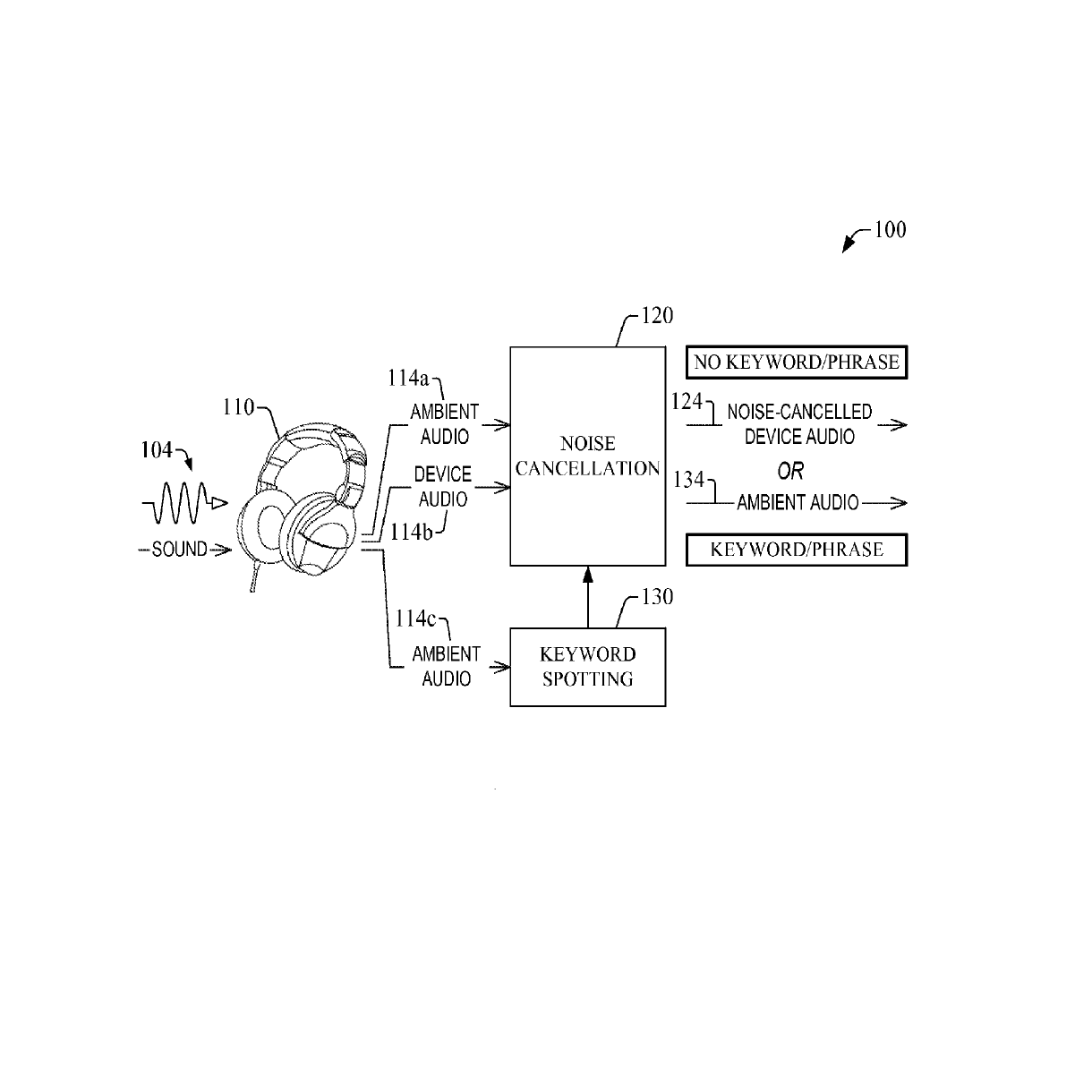- Rockin’ Patent: US Patent No. 9,398,367
- Filed: 25 July 2014
- In the name of: Amazon Technologies, Inc. (Assignee)
- Title: Suspending Noise Cancellation Using Keyword Spotting
- What’s claimed: “A method, comprising: receiving a first external audio signal from a microphone of a noise-cancelling device; determining that the first external audio signal does not comprise a keyword corresponding to suspension of noise cancellation; generating a noise-cancellation signal for cancelling the first external audio signal; causing a speaker of the noise-cancelling device to generate audio corresponding to the noise-cancellation signal; receiving a second external audio signal from the microphone of the noise-cancelling device; determining that the second external audio signal comprises the keyword corresponding to suspension of noise cancellation; facilitating presentation of at least a portion of the second external audio signal at the noise-cancelling device by suspending noise cancellation for at least the portion of the second external audio signal; determining that a defined interaction with the noise-cancelling device occurred, the defined interaction corresponding to an event to resume noise cancellation; and resuming the noise cancellation for at least a second portion of the second external audio signal”.
- Why this patent rocks:
- This patent describes noise-cancelling headphones that can suspend noise-cancellation in response to detecting certain keywords, e.g. the phrase “Hey Ben”.
- This patent describes how noise-cancelling headphones can isolate a user from the surrounding environment: “Noise-cancelling headphones typically permit consuming audio in noise-intensive or otherwise noise-hostile environments, such as a busy street or a vehicle having a noisy cabin. As such, the operator of the noise-cancelling headphones tends to be at least acoustically isolated from the environment, and therefore, including the operator in a discussion with another party or otherwise attracting the operator’s attention can be difficult or otherwise inconvenient”.
- This patent also describes that “the disclosure provides embodiments for suspending noise cancellation in a noise-cancelling device based at least on keyword recognition. In one aspect, a keyword in an utterance received at a noise-cancelling device can be recognized as a predetermined word or phrase, and in response, noise cancellation at the noise-cancelling device can be suspended or otherwise terminated. In one example, recognition of one or more keywords (e.g., words or phrases) in an utterance can leverage approaches or techniques specific to identification or spotting of keywords (e.g., words or phrases), as opposed to relying on full-fledged speech recognition. Accordingly, in at least certain embodiments, keyword recognition may be referred to as keyword spotting. The utterance in accordance with aspects of the disclosure can contain a predetermined keyword (e.g., a predetermined word or a predetermined phrase (such as more than one predetermined words)), and can be specific to an end-user that utilizes the noise-cancelling device and/or another person that interacts with the end-user. As such, in one aspect, the disclosure contemplates speaker identification in addition to keyword spotting. In addition, although an utterance may contain a predetermined keyword, noise cancellation may not be suspended unless the predetermined keyword is uttered by a specific human speaker. It should be appreciated that in the present disclosure the term “keyword” can refer to a word (such as “Hey”) or a phrase (e.g., “Hey Ben”), and therefore, keyword spotting as described herein is not limited to identification of a single word, but it can contemplate identification of a phrase”.
If you’re a patent-savvy music tech business looking for patent help, get in touch with Russell IP here!
The information above is for general interest and information only and does not constitute legal advice.

